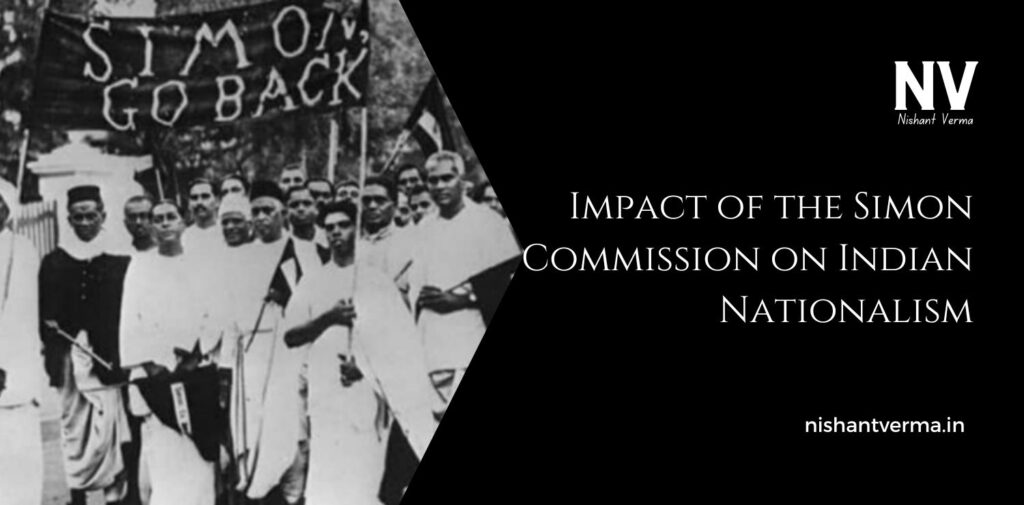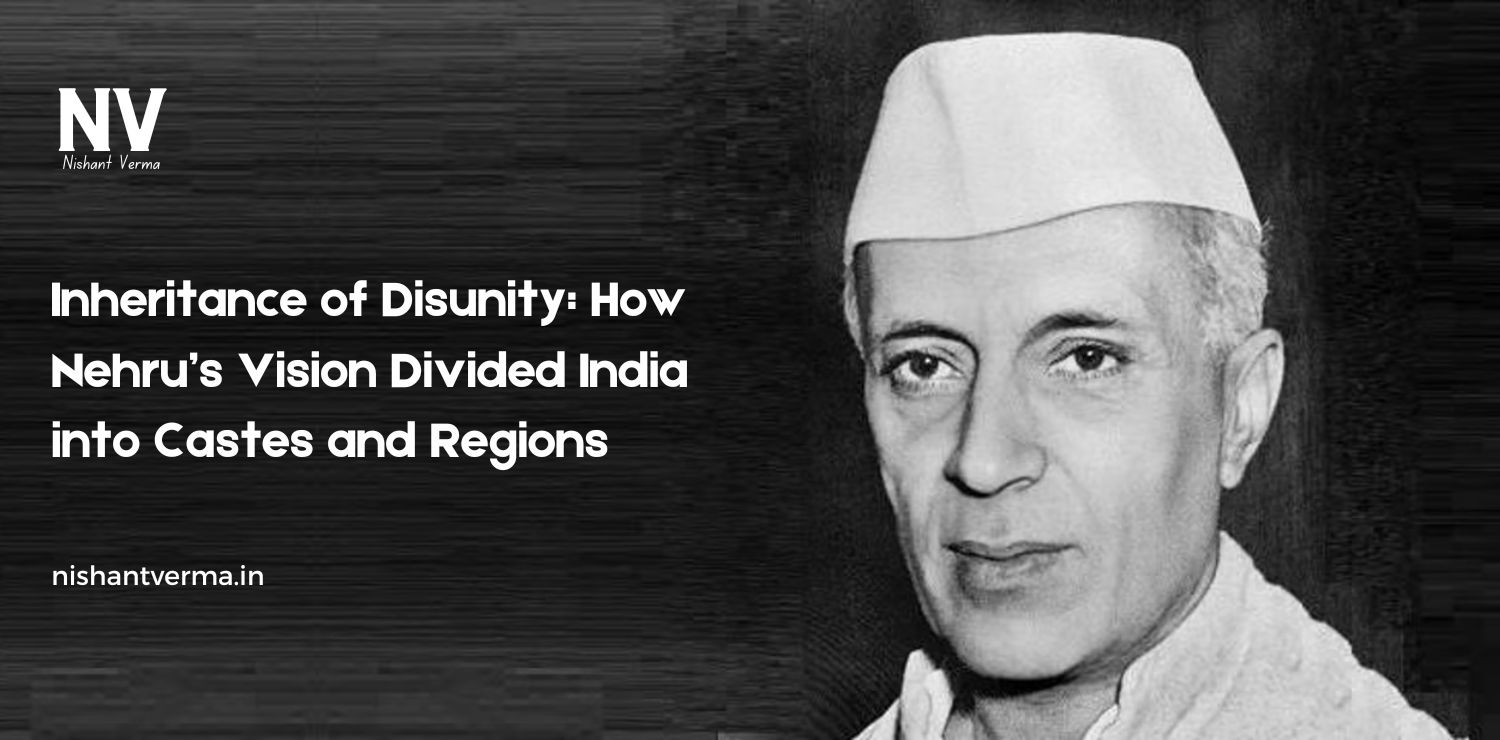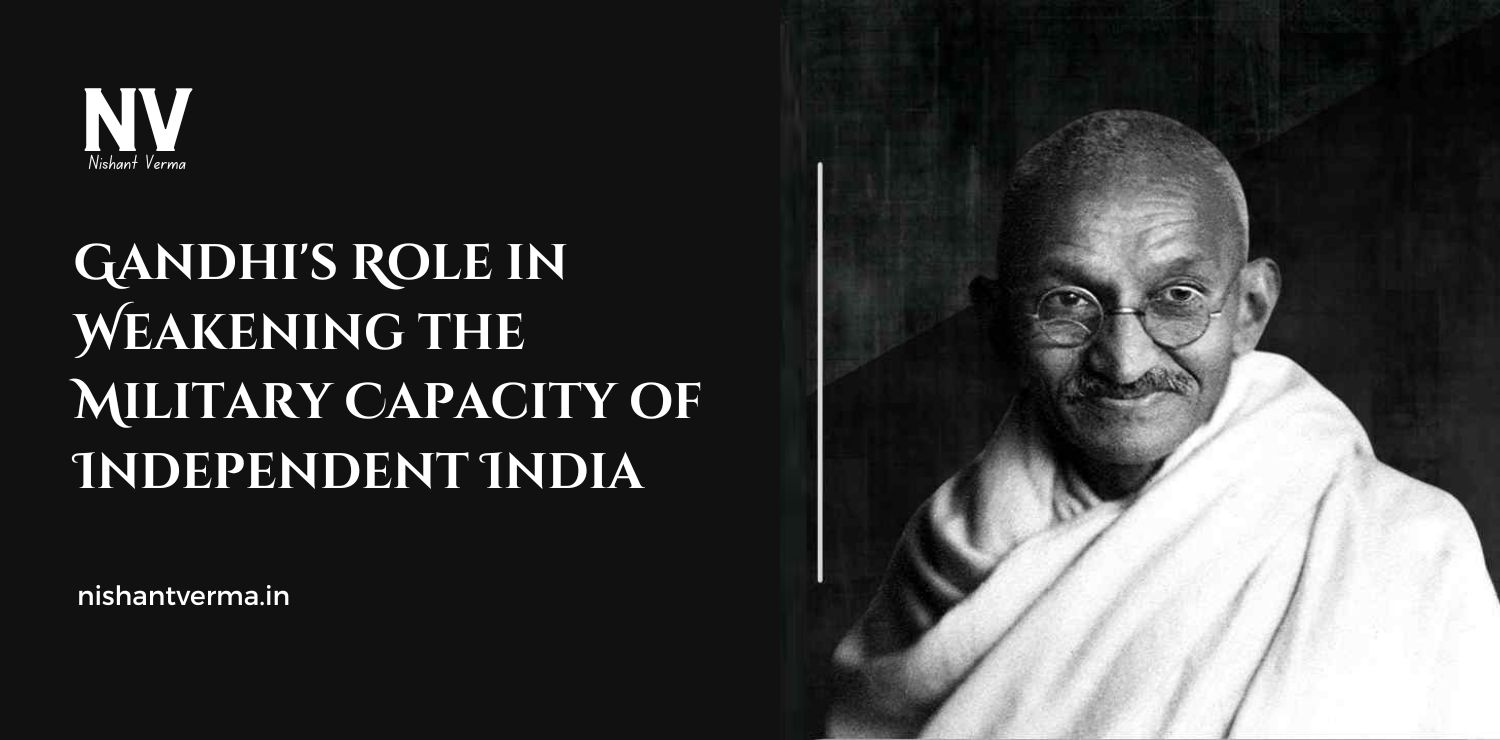India’s fight for freedom from British rule was a long and difficult struggle, filled with many important events that brought Indians together to demand their rights. One such event was the Simon Commission, a moment that had a huge impact on the growing feeling of nationalism in India. The Simon Commission was one of the key turning points in India’s journey toward independence, and it played a vital role in shaping the freedom movement.
In this article, we will learn about what the Commission was, why it was so important, and how it affected Indian nationalism. The aim is to explain these events in a simple and easy way so that even young readers can understand how the Simon Commission influenced India’s fight for freedom.
What Was the Simon Commission?
The Simon Commission was a group of British officials who were sent to India by the British government in 1927. Its purpose was to review the progress of the government’s reforms in India and decide whether more changes were needed. However, there was a huge problem – not a single Indian was included in the commission. All the members of the Commission were British, and this upset many Indians.
At the time, India was under British rule, and many people were unhappy with the way the British were ruling the country. They wanted to have more control over their own affairs and be treated equally to other people in the British Empire. The fact that the Simon Commission did not include any Indian members made Indians feel even more ignored and insulted.
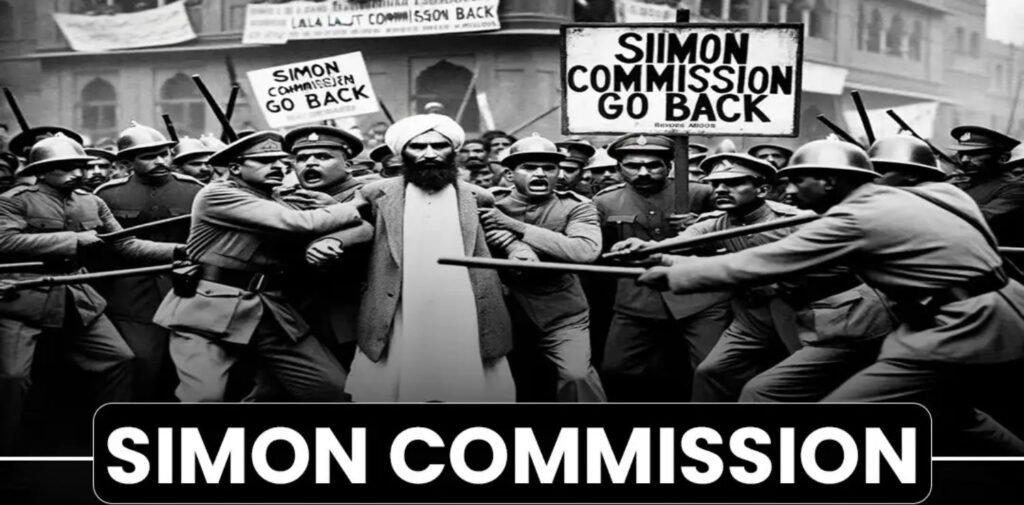
Why Was the Simon Commission Unfair?
The Simon Commission was created without consulting the people of India, and this angered many leaders and citizens. The British government had promised in the past that India would be given more self-rule over time. However, they did not keep their promise. Instead, they sent a group of British officials to decide India’s future without including a single Indian voice.
This was a clear sign that the British government did not trust Indians to make decisions about their own country. Indians were treated as if their opinions didn’t matter, and this made many people angry and frustrated. The Commission became a symbol of the British government’s disrespect for Indian people and their desires for independence.
The National Protest Against the Simon Commission
In 1928, when the Simon Commission arrived in India, protests and demonstrations broke out across the country. The Indian National Congress (INC) and other political groups led massive protests against the commission. Leaders like Lala Lajpat Rai, Jawaharlal Nehru, and other members of the Congress were at the forefront of these protests.
One of the most famous protests was in Lahore (in modern-day Pakistan). Lala Lajpat Rai led a peaceful demonstration against the Simon Commission. During this protest, British police officers used force to break up the crowd. Lala Lajpat Rai was badly injured during the police assault, and although he showed great courage, he later died from his injuries.
The incident in Lahore became a turning point in the Indian freedom movement. The brutal attack on Lala Lajpat Rai stirred the anger of many Indians. They now saw the Simon Commission not just as an unfair decision, but as a direct attack on their rights and dignity. This led to even greater unity among Indians to demand independence.
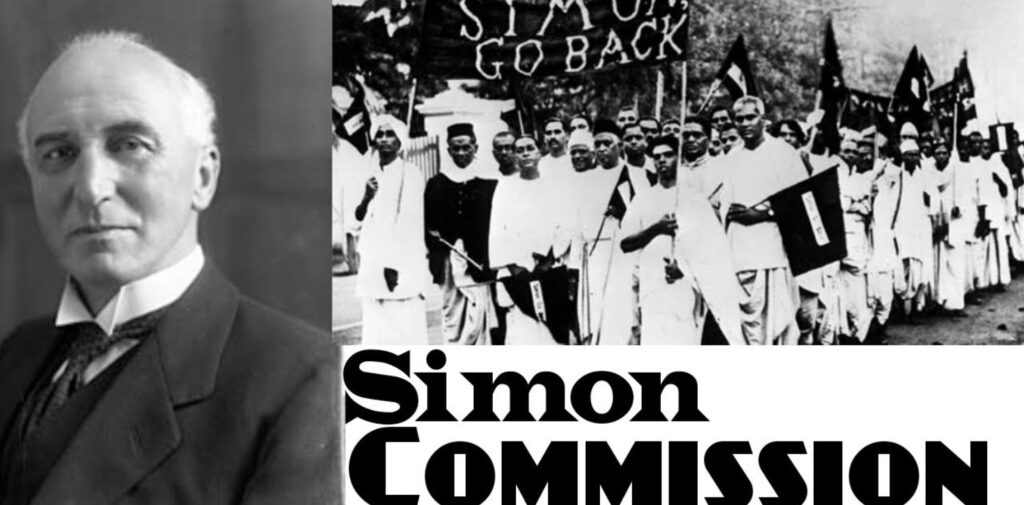
The Role of the Simon Commission in Shaping Indian Nationalism
The Simon Commission had a huge impact on Indian nationalism. Before the commission, many Indians were already unhappy with British rule, but the Simon Commission made them more determined to fight for their rights. Here’s how the Commission changed Indian nationalism:
- Unity Among Indians: The Simon Commission united people from different parts of India and from different political groups. Despite their differences, Indians came together to oppose the British and demand their rights. The idea of Indian unity became stronger during the protests against the commission.
- Increased Anger Against British Rule: The unfairness of the Simon Commission made many Indians even angrier with the British. It showed that the British did not respect the people of India and were only interested in keeping control over the country. This anger sparked more protests and helped to bring out the true spirit of resistance against British rule.
- Strengthened the Role of the Indian National Congress: The Indian National Congress (INC) had been calling for more self-rule for many years, but after the Simon Commission, it gained more support from the people. The INC became the central force in the fight for India’s independence. The Simon Commission made it clear that the Indian people wanted more control over their country and were no longer willing to accept British rule.
- Increased Participation of Common People: The Simon Commission protests were not limited to the political leaders of India. Common people, including students, workers, and farmers, also took part in the protests. This was the beginning of a larger mass movement, where people from all walks of life joined the freedom struggle. It showed that India’s fight for independence was not just about a few leaders but about the entire country coming together.
- Boosted Nationalist Sentiments: The Simon Commission and the protests that followed made people feel a stronger sense of nationalism. They began to see that their struggle for independence was not just about gaining political freedom but also about fighting for their rights, dignity, and self-respect. The idea of being an independent nation, free from foreign rule, became a powerful force in the hearts of Indians.
The Simon Commission and the Growth of Revolutionary Movements
The Simon Commission also encouraged the growth of revolutionary movements in India. Some young leaders and groups believed that peaceful protests would not be enough to drive the British out of India. They wanted to take stronger action, including using force if necessary.
As a result, many young freedom fighters, such as Subhas Chandra Bose, Bhagat Singh, and others, began to push for more aggressive methods of resistance. They were inspired by the protests against the Simon Commission and wanted to take the fight for independence to a new level. This led to the rise of more radical groups and the idea that India should not only fight for independence but also stand up against British oppression with strength and courage.
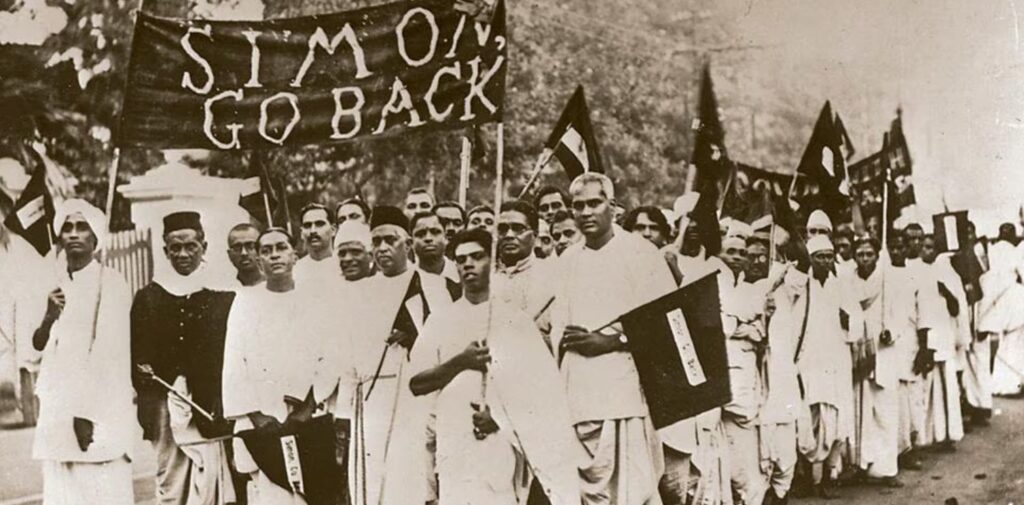
The Legacy of the Simon Commission
Although the Simon Commission itself did not directly lead to India’s independence, its impact on Indian nationalism was significant. The commission showed the British government’s disrespect for Indian people, which helped unite Indians against foreign rule. The protests against the commission were among the first large-scale nationwide movements that brought people together to fight for their freedom.
The death of Lala Lajpat Rai during the protests became a symbol of the sacrifice made by freedom fighters, and it inspired many more people to join the independence movement. His final words, “I shall die, but this will not be the end of our struggle,” became a rallying cry for the movement.
Conclusion
The Simon Commission played a key role in shaping Indian nationalism and accelerating the push for independence. Its unfairness and the brutal treatment of protestors sparked anger and unity among Indians. This helped strengthen the Indian National Congress, inspired a new generation of freedom fighters, and gave rise to the idea that India could no longer accept British rule.
The protests against the Simon Commission were a crucial moment in India’s struggle for freedom, and they demonstrated the growing power of Indian nationalism. Even though the Simon Commission did not directly lead to independence, it played an important role in creating the conditions for the eventual success of the Indian freedom movement.
Today, the Simon Commission remains an important part of India’s history, reminding us of the power of unity, the courage of the people, and the determination to fight for freedom.

